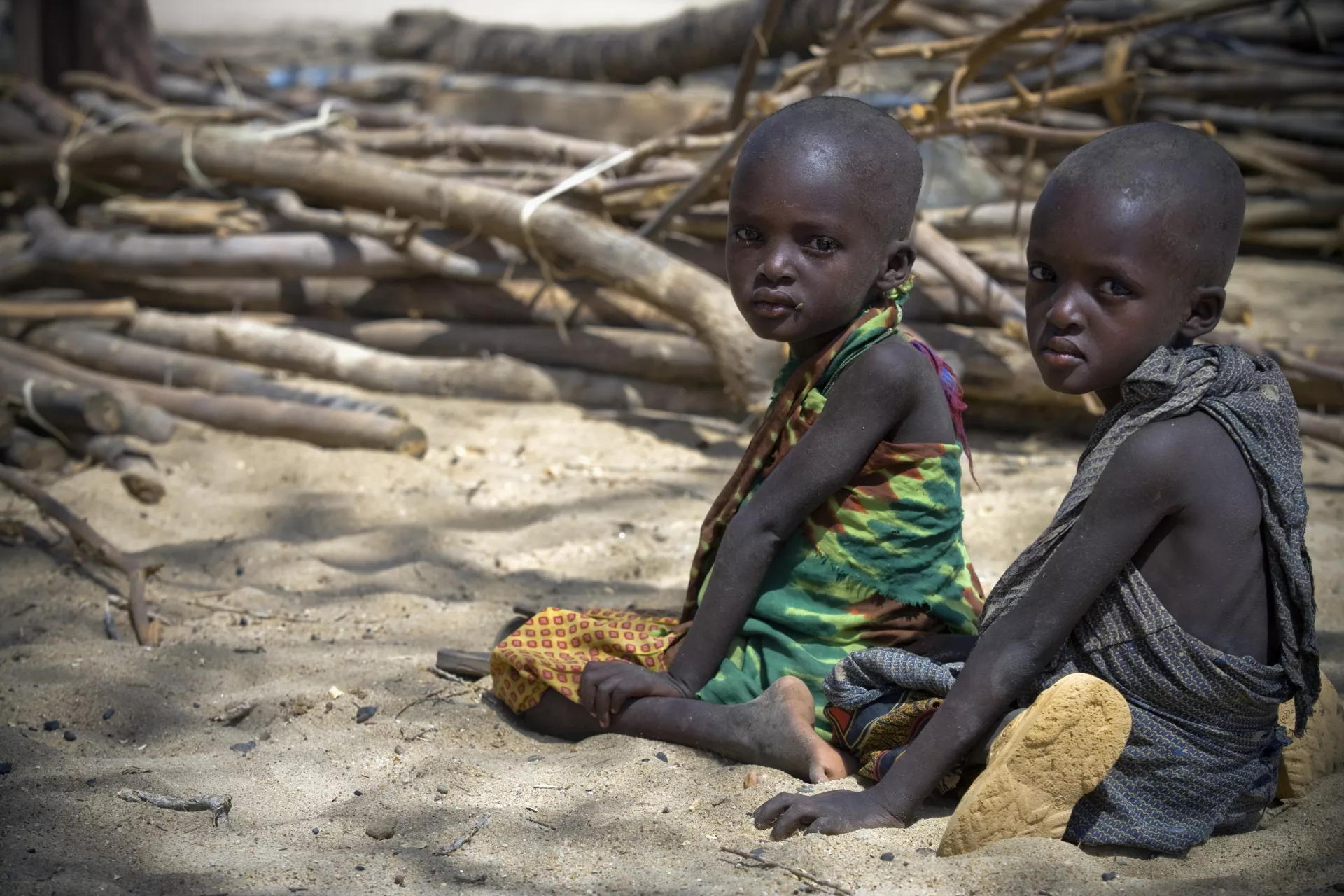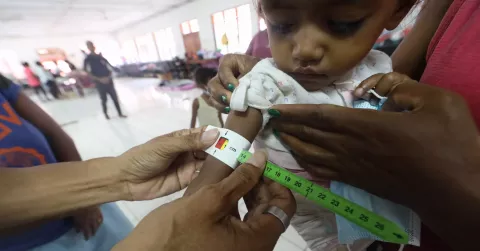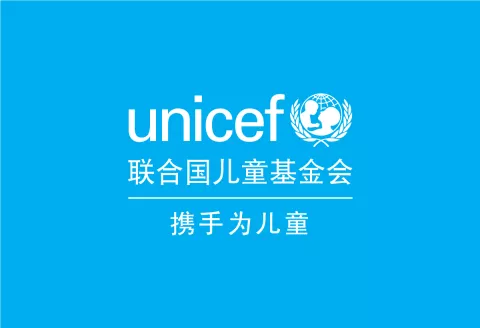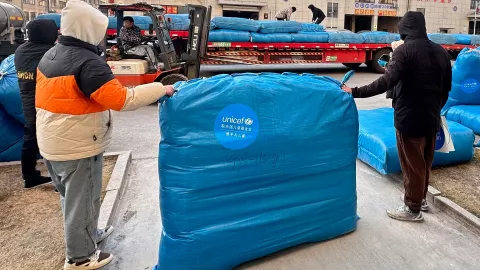UNICEF delivers crucial supplies to the Horn of Africa
UNICEF delivers crucial supplies to the Horn of Africa

- Available in:
- 中文
- English
NEW YORK, United States, 22 July 2011 – A tragedy of epic proportions is unfolding in the Horn of Africa, where hundreds of thousands of children are facing death due to starvation. The disastrous combination of a paralyzing drought, skyrocketing food prices and conflict has left over 11 million people battling hunger to survive.
The United Nations has declared famine in two regions of southern Somalia - southern Bakool and Lower Shabelle - and warned that if immediate action is not taken, famine could spread to all eight southern regions in two months.
UNICEF estimates that 1.85 million are in dire need of urgent aid. In some regions one in every three children is severely malnourished, their lives at risk.
Race against time
The organization has appealed for urgent help to provide the critical assistance to prevent what is already the world's worst humanitarian disaster from becoming even more serious.
"We are gearing up our logistics to deliver unprecedented supplies of therapeutic and supplementary foods across the Horn," said Shanelle Hall, Director of UNICEF's Supply Division. "If we are to save lives, we need to act now – to bring in massive quantities of medicines, vaccines, nutrition supplies into the region as quickly as we are able and then get them out to the children who need it most."
Since the beginning of July, UNICEF has delivered 1,300 metric tons of life saving supplies to some of the hardest hit areas in southern Somalia, including enough therapeutic supplies to treat over 66,000 children malnourished children.
In an effort to prevent the outbreak of disease, insecticide-treated mosquito nets and essential medicines including vaccines are being airlifted to support massive vaccination campaigns that will be conducted over the coming weeks.
Pushed to the brink
Across the semi-arid and arid areas of Kenya, Ethiopia, Djibouti and Somalia, thousands of people have been trekking for days in search of food and water, awaiting assistance that could mean the difference between life and death.
In Somalia, a country where decades of war and instability has already pushed the most marginalized and vulnerable to the brink, the suffering seems unending. Driven from their homes into neighbouring countries, tens of thousands of Somalis arrive daily at places such as Dadaab in North-Eastern Kenya, the world's largest refugee camp, providing shelter to more than 383,000 people.
Surviving the crisis
In Ethiopia, the severe drought has resulted in high levels of malnutrition among children in affected districts like Fedis, with an estimated 312,740 children who are severely malnourished and require urgent life-saving treatment.
"Malnutrition here has never been as bad as this year," said Lemlem Worku, one of two health extension workers assigned to the Belina Arba health post, who has been working in Fedis District for the past four years.
Currently, there are 41 severely malnourished children receiving treatment at the Belina Arba Health Post - three times more than at the same time last year. Genete Mohammed's 18-month-old daughter, Iman, is one of them.
"It did not rain on time, and when it did, it rained for two days only," said Genete. "At this time in the past the corn would be ready. The young corn – potatoes, onions, now is the time that they should be ready. Also peas - the peanuts too are not ready."
Genete has been bringing Iman to the Belina Arba Health Post for the weekly UNICEF-supported outpatient therapeutic feeding programme. This is Iman's third visit to the health post and her progress is encouraging.
Reaching every child
In order to step up operations and reach the most vulnerable children in the Horn of Africa, UNICEF estimates it will need USD$100 million over the next six months.
"UNICEF is using every means possible to reach every child. There simply can be no compromise on the objective to keep children and their families alive," said Elhadj As Sy, Regional Director for UNICEF Eastern and Southern Africa. "Every life must count and we cannot afford to lose more lives to this crisis."




